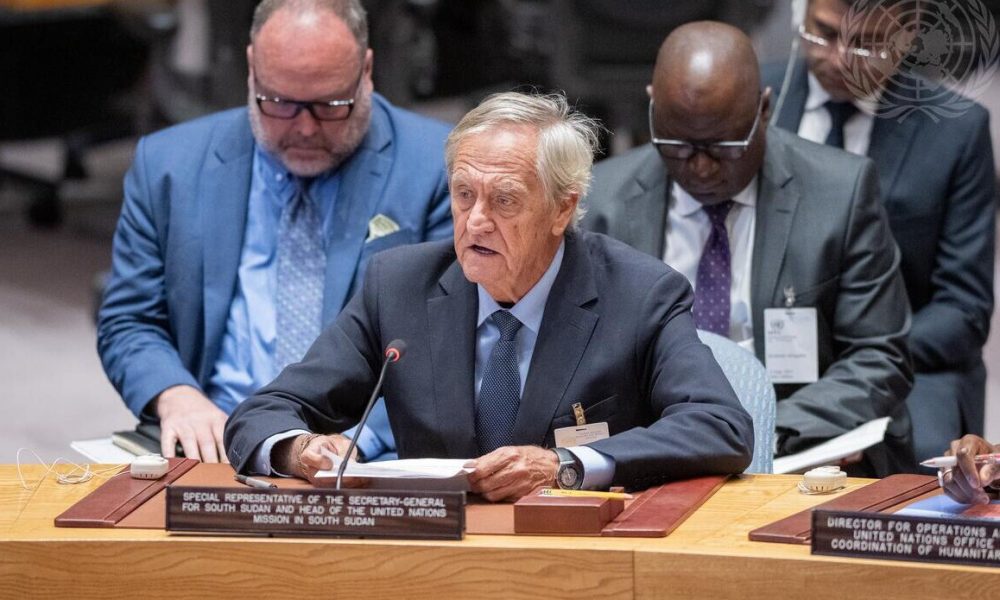By Charles K Mark
Special Representative of the Secretary-General and Head of the United Nations Mission in South Sudan (UNMISS) Nicolas Haysom has told the UN Security Council that the current political atmosphere in the country favors one party.
South Sudan is to conduct its first election at the end of the Transitional period in 2024.
Mr. Haysom noted that the campaign has begun and there is a need for the establishment of the Political Parties Council to ensure equal opportunities, access and rights for all political parties to mobilize support in some states.
While briefing the UN Security Council on Friday last week, Mr. Haysom cautioned that unilateralism and brinkmanship are toxic to the practice of post-conflict unity coalition governance, which requires compromise, mutual trust, and confidence building.
“I recognize the collective responsibility of the political class as a whole and in general, including the opposition parties, in progressively unlocking the blockages in the roadmap,” said the head of UNMISS.
The Special Representative acknowledges that a preeminent responsibility rests on the ruling party to resist unilateral interpretations of the Peace Agreement.
Haysom urged the R-TGoNU to make full use of available public resources and decision-making committees to advance the implementation of the agreement.
He noted that further steps that must be taken by the country’s political leadership include passing priority election-related legislation in parliament and allocating a national budget for elections.
“Reconstituting and resourcing key electoral institutions (the National Constitutional Review Commission, the National Elections Commission, and the Political Parties Council),” the mission’s head continued.
The UN Special Envoy challenged the unity government to complete essential benchmarks in the roadmap, especially related to the Transitional Security Arrangements.
“I note that, during a recent Political Parties Forum in Wau, stakeholders across the political spectrum reaffirmed their commitment to a more open political space, including through local mechanisms to support freedom of expression, association, assembly, and movement,” Haysom cited.
However, in a rebuttal, the ruling SPLM party refuted Haysom’s sentiment.
SPLM Secretary General, Peter Lam Both, when contacted for comment on Haysom’s claims argued that the political space in South Sudan is currently open for all political parties.
But he noted there are still some areas in the country that are inaccessible, but they are pushing to open ways.
“We have not seen SPLM-IO giving instructions to their commissioners and governors to open political space,” said Lam.
“I think that statement is unfortunate, that the Special Representative gave to the UN Security Council. It is uncalled for and It is condemnable,” Lam Both Protested
South Sudan anticipates holding its first elections in December 2024. However, key institutions and legal frameworks have yet to be put in place.
With 15 months remaining until the elections scheduled to end the transitional period, time is of the essence for South Sudan.
The parties are yet to decide on the type of elections to be held, voter registration requirements, how electoral boundaries will be determined, the nature of the participation of refugees and internally displaced persons, the allocation of security responsibilities, and how electoral-related disputes will be managed according to the UN.




